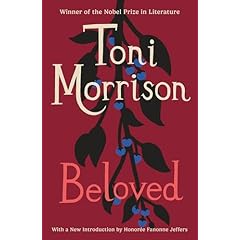Reading Aloud: An Unexpected Road Trip Pleasure
(This post also appears at http://www.jasonshaffner.com/blog.)

The drive from Syracuse (NY) to Greenfield (MA) lasts 255 agonizing miles. By the time we start forth, we have already been in the car five hours, having visited five Syracuse high schools between 8:30am and 1:00pm. After a week on the road, we have wearied of the ten CDs we trucked along with us. Hold off on calling us Luddites; few rental cars come equipped with satellite radio, and we left our iPod attachments at home.
Keryn comes up with an unusual solution: “Maybe you should read aloud.”
My first impulse is to take this opportunity to read her the newest chapters of my novel-in-progress. But that might seem a little selfish on my part…
I have always been a proponent of reading my drafts aloud. There’s no better way to find pet phrases or clumsy structures than to recite them. Whenever I complete a draft, I carry the printout through my apartment and pace from bedroom to kitchen and back. In an online workshop I’ve been a member of for several years, I was appalled to see a fellow writer proclaim his belief that reading aloud was a waste of time, since that’s not how readers read. His lunacy was confirmed a paragraph later, when he went on to say that rhythm and language were immaterial to story.
I don’t know that this joker is alone in his assessment, though, which is a tragic thing indeed. In my years of workshopping, I have run across many people who claim to have a great story to tell and believe that the power of plot can compensate for lacking technical proficiency with the language. I’m not sure where they came upon this silly notion. Granted, on the opposite extreme, story sometimes disappears into a fog of figurative construct and purple prose. Literary writing is a balancing act of all the core elements. The craft is about using the sounds and shapes of words to tell a story. If your tongue trips on itself trying to read a sentence, flaws remain in need of smoothing.
But I’ve led us off topic.
Cut to an East Syracuse Kmart. Keryn and I are looking for a DVD to watch on my laptop back in the hotel room. We find a winner and head toward the front of the store. The fiction section holds us hostage for ten minutes. Both of us are bookstore addicts; it is a blessing and a curse.
Smack dab in the center of the display stands the maroon cover and mauve script of Toni Morrison’s Beloved. That famous novel was one of two unread books on the syllabus of a literature class I took my junior year at Harvard, and I have always felt a distinct measure of regret for not going back later and reading it. (The other unread book was Herzog by Saul Bellow). I impart this story to Keryn and she suggests we read it on the road. We agree that the jacket text is intriguing and drop the book in our cart.
Ten minutes outside Syracuse, with three hours of daylight remaining, on our way to Greenfield, Mass., I crack the binding.
“124 was spiteful. Full of a baby’s venom. The women in the house knew it and so did the children. For years each put up with the spite in his own way, but by 1873 Sethe and her daughter Denver were its only victims.”
When I reach the bottom of the page, I stop.
“Now that’s writing,” I say. “Damn.”
Keryn nods. “Keep reading.”
There are awkward moments, words distasteful to my tongue, words that raise the fuzz on my neck. Some images haunt us. Vicious beatings and rapes. The murder of a daughter for reasons unknown. Scars, spirits, and sexual intercourse. Butter churns and pink granite tombstones. As the words roll from my tongue, Keryn asks: “Can you read that again?” And sometimes I finish a sentence and pause to mutter “Wow” before I can proceed. That is the power of great writing.
The first time I read Lolita, I stopped and stared at the first page, then permitted my eyes’ return to the top. I recited that famous opening in the quiet of my sophomore dorm room. “Lolita, light of my life, fire of my loins. My sin, my soul. Lo-lee-ta: the tip of the tongue taking a trip of three steps down the palate to tap, at three, on the teeth. Lo. Lee. Ta.” In that moment, the power of language overwhelmed me.
But back to Beloved. This is a book built for oral recitation. The vernacular in the voices of Sethe, Denver, and Paul D. comes alive, and you realize how perfectly the author has crafted the dialogue. Tight, evocative, and real. It’s a hard life few readers can truly imagine, yet it comes alive through the words. Speak through the characters and feel their anguish and sorrow, the fleeting moments of elation, the doubt and worry and hope. And in the long passages of exposition, you find sentences so powerful that sometimes you have to stop and say them again.
That afternoon in the car, I complete only fifty pages. But we decide that the entire book should be read this way, and through the weekend we take turns reading difficult and powerful words. I have never experienced a book this way. Beloved is truly a masterpiece.
Meanwhile, Keryn and I have decided this whole reading aloud thing, experiencing a great book in lockstep, is a tradition henceforth. Beloved will be a tough act to follow…

0 Comments:
Post a Comment
<< Home